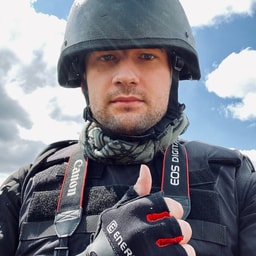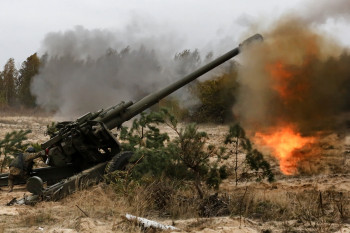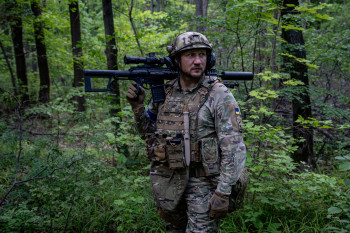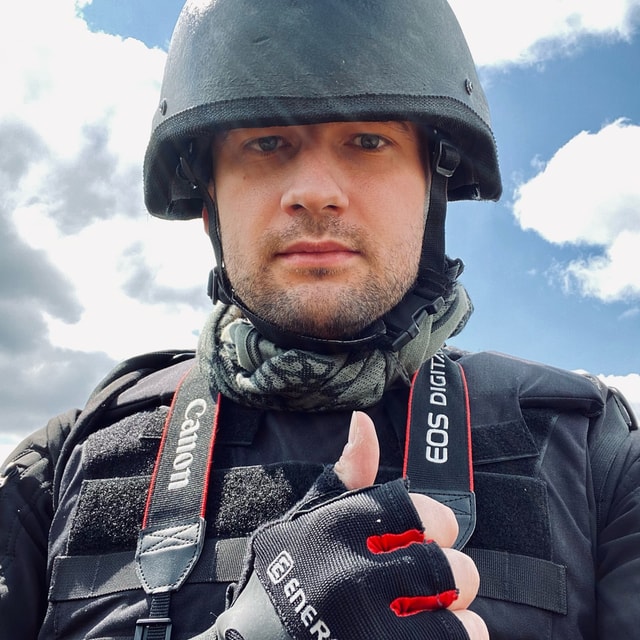Illia Ponomarenko: Stop whining about the war in Ukraine
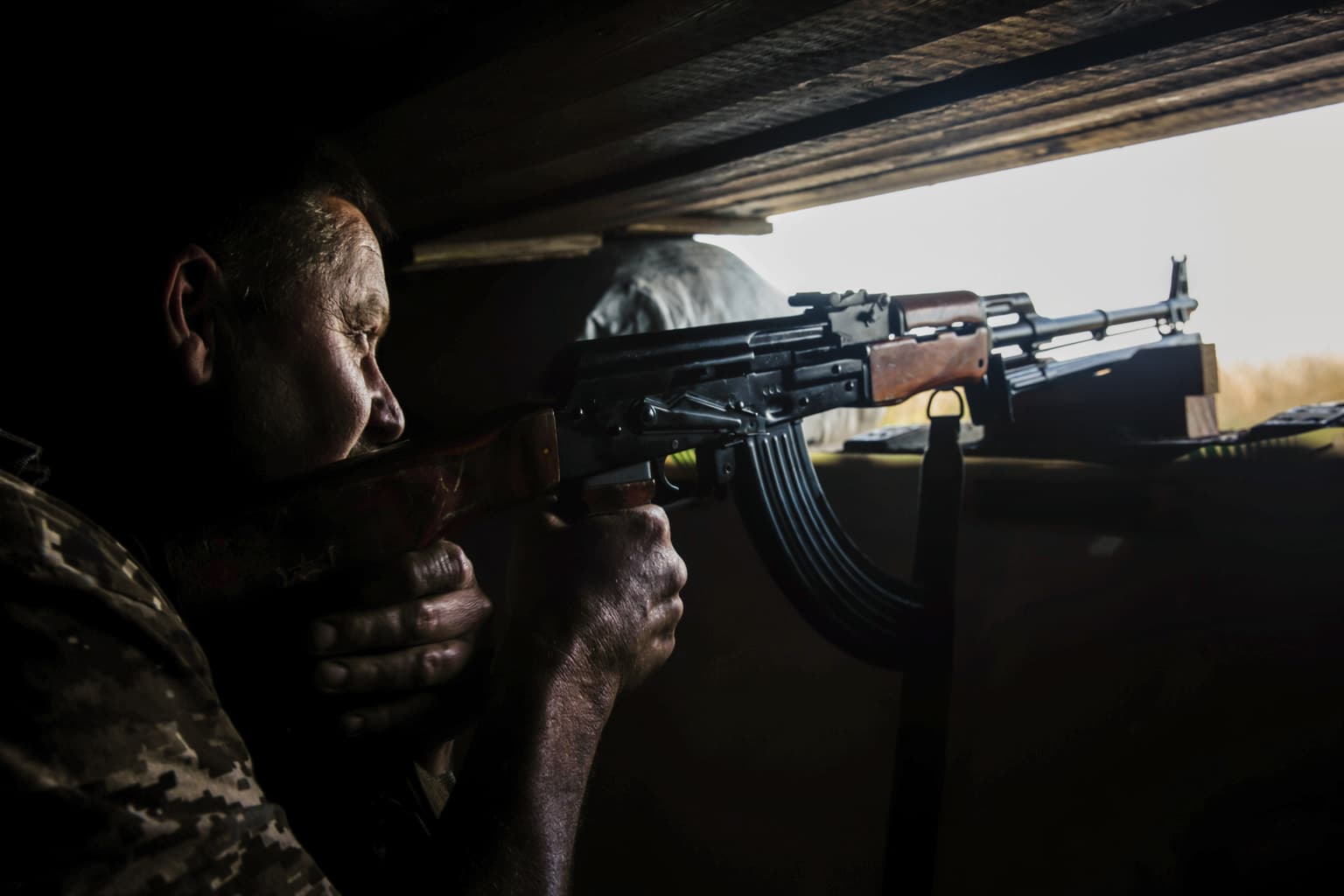
Sometimes, it just makes sense to admit that clairvoyance is a rare gift. And that not too many people can explain the future.
Especially concerning things as complex as the largest European war since WWII.
Russia’s all-out invasion of Ukraine is about to cross the six-month point. It feels like we all have lived a whole life within those months, and this war keeps blowing everyone’s minds, again and again.
All life is a mystery, and we have seen quite a few things no one expected.
When global media were anticipating Ukraine’s dark fate in February, did many expect the spectacular failure of Russia’s blitzkrieg? Or that the Russian military would turn out to be very far from the forever-victorious space marine force it portrayed itself in its propaganda for decades?
Or that Russia would lose a fleet’s flagship to a nation that has no navy? Or that it would be celebrating a 10-kilometer advance, following months of fierce hostilities, as a Stalingrad-scale victory?
Or that Ukraine, using advanced Western-provided rocket systems, would pose a severe danger to Russia’s presence in Kherson, isolating its military units from supplies across the Dnipro River?
If there’s one thing that this war has taught us, it’s the following: stay away from snap judgment and bold prophecies.
Especially when it comes to “Ukraine is now doomed because of X and Y.”
Because sometimes invisible magic happens — and Russian military checkpoints in Irpin, a couple of kilometers away from my house in Kyiv, turn into abandoned heaps of sandbags over just one night.
Six months ago, just about a week before the full-scale invasion, I felt obliged to say a word or two about this “Ukraine is doomed” that was overshadowing the world media.
Ukraine’s fall was not predestined because we had our military and our people willing to fight.
We all know what happened in the following.
Instead of listening to numerous doomsday forecasts, Ukraine’s National Guard put up a real fight against Russian airborne units at the Hostomel Airfield just outside Kyiv trying to gain a foothold and attack Ukraine’s very heart.
Ironically enough, Ukraine just did not buy this “Kyiv is going to fall within 72 hours.”
Without falling into self-inflicting doubts, and putting aside those who have lost all hope, Ukraine was doing what it should, no matter what.
And here we are now, all discussing Ukraine’s possible way to retake Kherson and Melitopol and witnessing Russian airfields in Crimea wiped out by Ukrainian attacks on a daily basis.
That’s quite someprogress since February.
And yet now it's all over social media again: “Ukraine may not make it.”
Why? Because Russia is still strong, it has taken another small town in Donbas, and it’s reinforcing its Kherson garrison and “mobilizing” more mercenaries.
Yes, this war is hard at any possible level. It’s bloody, and it’s ugly.
It is true that Ukrainian soldiers and officers write Facebook posts that are full of desperation and grief for all the hell and destruction they’ve been through.
They are angry at their commanders for not doing a good job, for not providing enough artillery support, and for making their soldiers hold the ground in conditions few human beings can survive.
Ukraine has mobilized hundreds of thousands of personnel, but many are undertrained and underequipped, and their commanders are very often under-qualified.
Due to the lack of manpower for the 1,000-kilometer front line, the Ukrainian command is forced into plugging holes with Territorial Defense units — basically lightly-armed yesterday’s taxi drivers and software developers led by yesterday’s military clerks with no battlefield leadership experience.
It is also true that Ukrainian counter-battery activities are barely effective in stripping Russia of its most powerful weapon of advancement — overwhelming artillery with a vast stock of munitions available.
Ukraine still finds it hard to do anything about it. It lacks long-range artillery pieces, it lacks competent battlefield leaders, and the munitions supply coming from the West is still not enough.
Ukraine is extremely dependent on Western military supplies, and it finds it hard to get enough weapons and hardware to arm its new brigades and regiments.
The Russian wall of fire still destroys everything in its way, Ukrainian cities and defensive lines alike.
The Ukrainian infantry in trenches has to carry this terrible load on its shoulders and pay with its blood for every single day we’re not seeing any significant Russian progress. When this is over, we will spend a decade mourning our dead.
And the Ukrainian command, with its limited resources, too often makes a bid on the persistence and combat heroism of their soldiers, bringing them to extreme exhaustion.
The Ukrainian death toll is horrifying. We do not know the exact number, but based on estimates confirmed by Ukrainian officials, it’s way over 10,000 killed in action at this point. The price behind the relatively stable present situation now is beyond imaginable.
This war is a mess.
It’s foolish to imagine it as a tale of a shining knight slaying the evil dragon in just one strike with a magic sword.
Yet, it’s even more foolish to fall into despair now — given all the progress Ukraine has already made.
Over these months, we’ve made our way from the West not giving us a chance against Russia and providing us with weapons for guerrilla warfare — to the West talking about the war until victory and sending us advanced artillery, air defense, missiles, kamikaze drones, and vehicles worth billions of dollars.
We’ve made the way from Russia standing just at the gate of Kyiv to Russia hastily recruiting convicts as cannon fodder and forming poorly-trained “volunteer battalions” motivated by nothing but a chance to earn at least some money.
Russia’s offensive potential has been degraded to the point of being able to gain just very marginal, painfully slow, and barely meaningful territorial gains in some sections of the Donbas front line, where it can still create a heavy concentration of manpower and artillery.
The Battle of Donbas has been the very focus of Russia’s war effort for over four months now. Nonetheless, it’s not even close to completing the seizure of the whole region.
So no — when Russia spends weeks and enormous resources to push the Ukrainian military out of Pisky, a small ruined town outside of Donetsk — it does not mean “the Ukrainian front is collapsing,” as some would say.
And no — when the Ukrainian military decides to retreat to yet another local defensive line following a long battle, this does not mean that “Russia is winning this war.”
Because victory comes as your enemy’s military force is defeated and destroyed to the point of being unable to keep on fighting — not when you occupy a useless heap of ruins and ashes that used to be a city.
Foreign military assistance is indeed still far from enough to surely win this war. But six months ago, we could only dream of having M142 HIMARS systems. Right now, they continue wiping out Russian ammo dumps and mercenary headquarters all along the front line.
It is the blood of the Ukrainian Armed Forces that has made a difference. Along with the effort of so many other people in Ukraine and beyond who are bringing us closer to ultimate success.
So, in other words — stop whining about this war.
Whining does not help. We have already come very far, and much more is yet to be done. A lot of artillery pieces and tons of munitions are yet to be agreed on and delivered, and a lot of issues within the Ukrainian war effort are yet to be exposed and fixed.
Ukraine now has an increasingly good chance to prevail, unless we decide to dive deep into self-inflicted hopelessness.
Be a part of a solution in any way you can, or get out of the way.
Illia Ponomarenko is the defense and security reporter at the Kyiv Independent. He has reported about the war in eastern Ukraine since the conflict’s earliest days.
___________________________________
Note from the author:
Hello! My name is Illia Ponomarenko, the guy who wrote this piece for you.
I hope you found it useful and interesting. I work day and night to bring you quality stories from Ukraine, where Russia is waging the biggest war in Europe since WWII. My little homeland, Donbas, is now the site of the worst fighting. We are helping to keep the world informed about Russian aggression. But I also need help from every one of you — to support Ukrainian wartime journalism by donating to the Kyiv Independent and becoming our patron. Together, we can help bring peace to Ukraine.
